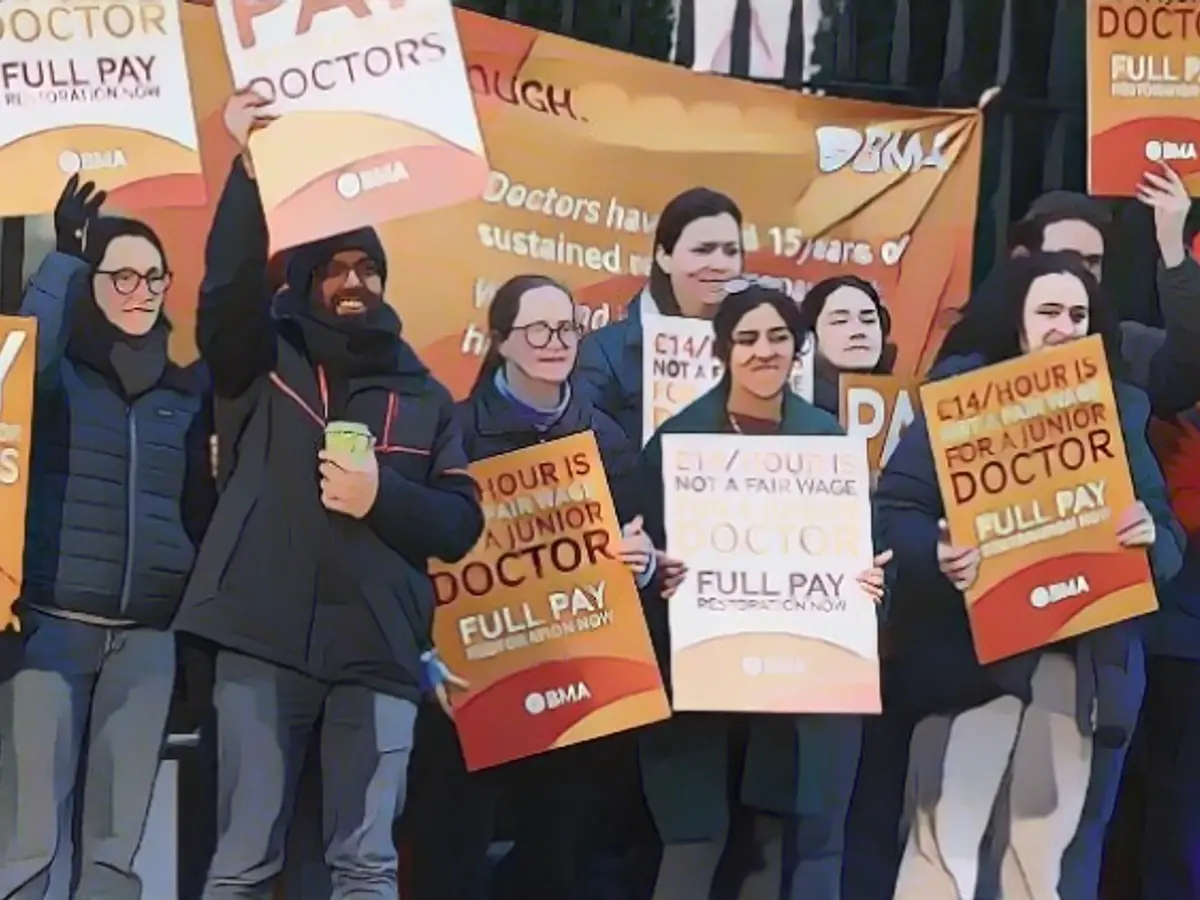British junior doctors go on historic strike
The British healthcare system has been suffering from a lack of funding for years. Young doctors in particular are not paid enough. And they no longer want to put up with it. Collective bargaining is breaking down and strikes are taking place. Now for longer than at any time in the last 70 years.
Hospital doctors in England have begun the longest continuous strike in the 70-year history of the British National Health Service (NHS). The junior doctors stopped work for six days from Wednesday morning. It is the second strike in two weeks in a pay dispute that has been going on for months.
The industrial action comes at one of the busiest times of the year. Traditionally, the NHS sees an increase in admissions to hospital in the two weeks after Christmas as people postpone treatment for the festive period. In addition, work pressure is high due to winter respiratory illnesses.
The strike will have a "significant impact on almost all routine treatments", the NHS said. Up to half of medical staff could go on strike. The medical director of the NHS, Stephen Powis, is expecting "one of the most difficult starts to the year" in the history of the health service.
The British Medical Association (BMA) had announced the strike at the beginning of December. According to the BMA, in addition to an average pay rise of 8.8 percent already agreed in the summer, a pay rise of 3 percent had been offered in the negotiations. The latter had rejected the offer, citing an uneven distribution among the various groups of doctors and arguing that the offer "would still mean a pay cut for many doctors".
Millions of appointments have been canceled
"Morale across the health service is at an all-time low. Many will be wondering whether it is still worth practicing their chosen profession - the government has a chance to show these doctors that they still have a future in this country," the BMA explained. Junior doctors are qualified medical practitioners, often with several years' experience, who work under the supervision of senior doctors and make up a large proportion of the medical profession.
The National Health Service (NHS), which has provided free healthcare since it was founded in 1948, has canceled a total of 1.2 million appointments since the strikes began in 2023. More than 7.7 million people are on waiting lists seeking treatment. The union is demanding a 35% pay rise, which it believes is necessary to cover the effects of inflation over several years. The last time junior doctors went on strike was for three days before Christmas.
Read also:
- Year of climate records: extreme is the new normal
- Precautionary arrests show Islamist terror threat
- UN vote urges Israel to ceasefire
- SPD rules out budget resolution before the end of the year
The ongoing strikes by junior doctors in Great Britain are a result of collective bargaining breakdowns and dissatisfaction with the current pay structure. This situation has led to significant disruptions in the health system, with up to half of hospital doctors participating in the strikes. The National Health Service (NHS) has had to cancel over 1.2 million appointments due to these strikes, exacerbating the existing waiting lists for treatment.
The medical directors of the NHS have expressed concern about the impact of these strikes on the already strained health system, predicting one of the toughest starts to the year in its history. The British Medical Association (BMA), representing the junior doctors, has rejected the 3% pay rise offer made during collective bargaining, arguing that it would result in a pay cut for many doctors and that a 35% pay rise is necessary to cover inflation's effects over several years.
The continuous strikes by junior doctors in Great Britain have raised questions about the government's ability to address the issues within the healthcare system and retain its medical professionals. Some doctors are expressing concerns about their future in the profession, leading to concerns about morale within the healthcare workforce.
Source: www.ntv.de








